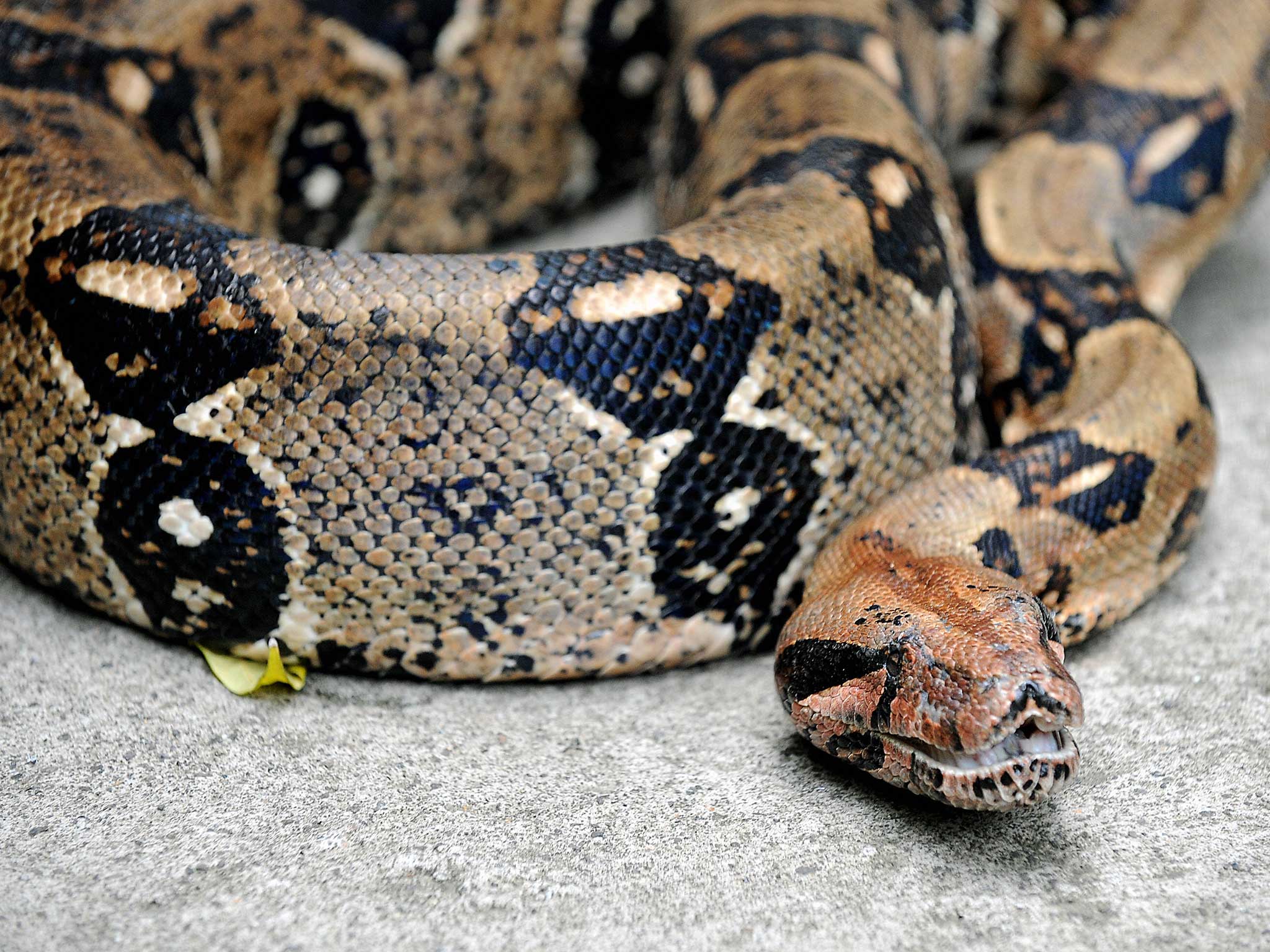More than 600 people sign up to Florida’s python-hunting challenge
The native Southeast Asian snakes are “wreaking havoc” on Florida’s ecosystem and are decimating other animal populations

Your support helps us to tell the story
From reproductive rights to climate change to Big Tech, The Independent is on the ground when the story is developing. Whether it's investigating the financials of Elon Musk's pro-Trump PAC or producing our latest documentary, 'The A Word', which shines a light on the American women fighting for reproductive rights, we know how important it is to parse out the facts from the messaging.
At such a critical moment in US history, we need reporters on the ground. Your donation allows us to keep sending journalists to speak to both sides of the story.
The Independent is trusted by Americans across the entire political spectrum. And unlike many other quality news outlets, we choose not to lock Americans out of our reporting and analysis with paywalls. We believe quality journalism should be available to everyone, paid for by those who can afford it.
Your support makes all the difference.More than 600 people in Florida have signed up to a python-hunting challenge to clamp down on the native Southeast Asian snake from growing in numbers and continuing to “wreak havoc” on the local ecosystem.
The month-long competition asks hunters to capture as many snakes as they can, dead or alive, to reduce numbers in the Everglades region.
The competition, organized by the Florida Fish and Wildlife Conservation Commission, said a cash prize will go to the hunter who captures the most Burmese pythons, as well as for the longest snake found, as reported by CNN.
Although not native to Florida, the snakes, which can grow up to 23 feet long and are one of the largest snake species in the world, thrive in the Everglades climate. They were first introduced to the region as an exotic pet and ran amok after a breeding facility was destroyed during Hurricane Andrew in 1992.
The snakes are held responsible for decimating the population of raccoons, rabbits and opossums, and they have few natural predators.
Despite their numbers, they are difficult to detect, according to the US Geological Society website.
The python challenge in 2013 gathered 1,600 hunters but only 68 snakes.
Hunters must have a valid hunting license, and are allowed to sell the skin or meat, but Burmese pythons from the Everglades have high levels of mercury and are therefore not recommended for human consumption.
Subscribe to Independent Premium to bookmark this article
Want to bookmark your favourite articles and stories to read or reference later? Start your Independent Premium subscription today.